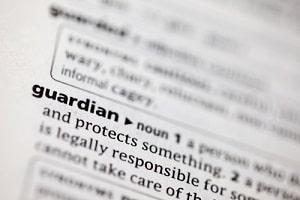Wheaton |
St. Charles |
Sycamore
 630-665-7300
630-665-7300
What Is Involved in Guardianship of an Adult With Disabilities?
When someone suffers from a serious disability, he or she may need assistance in completing day-to-day activities, managing finances, and getting appropriate medical treatment. If you have a disabled loved one who needs this type of extra care, you may be interested in becoming that person's guardian. Being the guardian of a disabled adult is a considerable responsibility and may also involve complicated legal steps. That is why it is important to hire an experienced attorney who can help you with the process of obtaining a guardianship in Illinois.
How Do I Know If My Loved One Needs a Guardian?

Sometimes, it is not easy to tell if a person is capable of adequately looking out for his or her own safety. For example, an elderly person with dementia may have some days that he or she is totally lucid and other days during which confusion and memory lapses are nearly debilitating. Guardianship of an adult is appropriate when a person is unable to make rational decisions and/or communicate his or her wishes regarding finances or personal care. A clinical evaluation is needed to determine the extent that a person's physical, mental, or developmental disability hinders his or her ability to make safe, responsible decisions.
Types of Guardianship in Illinois
The type of guardianship that you will pursue is based on the type of assistance your loved one needs. A “guardian of the person” is necessary when a disabled person cannot make or communicate decisions about his or her health care, housing, and other personal needs. A “guardian of the estate” is appropriate when a disabled person cannot make and communicate responsible financial decisions. A guardian who makes only some decisions on behalf of the disabled person is a “limited guardian” while a “plenary guardian” makes all of the decisions about financial concerns and/or personal care.
Steps for Requesting Guardianship of an Adult
If you wish to become the legal guardian of a disabled adult, you will need to file a petition with the court. Your petition must include basic information about the disabled person or “ward” as well as a physician's evaluation of the person's physical and mental capacity. In some cases, the court will appoint a “guardian ad litem” (GAL) to represent the disabled person's best interests. The GAL may interview the disabled person and other individuals relevant to the case and then make a recommendation to the court based on his or her findings. At the guardianship hearing, the court evaluates the information provided by the disabled person's physician, the GAL, and any witnesses. The court may appoint a limited guardian or plenary guardian or deny the request for guardianship altogether.
Contact a Wheaton, IL Guardianship Lawyer
If your relative or close friend is elderly or disabled, it is only natural to want to help him or her, which may include becoming his or her guardian. The experienced DuPage County family law attorneys at MKFM Law can help you throughout the guardianship process. Whether you need help deciding if guardianship is appropriate or you are ready to file a petition for guardianship, we will provide the legal guidance and representation you need. Call our office today at 630-665-7300 to learn more and schedule a confidential consultation.
Sources:
https://www2.illinois.gov/sites/gac/OSG/Pages/Practitioners-Guide-to-Adult-Guardianship-in-Illinois.aspx
https://www2.illinois.gov/sites/gac/OSG/Pages/PG-DEF.aspx#1


 Read More
Read More





